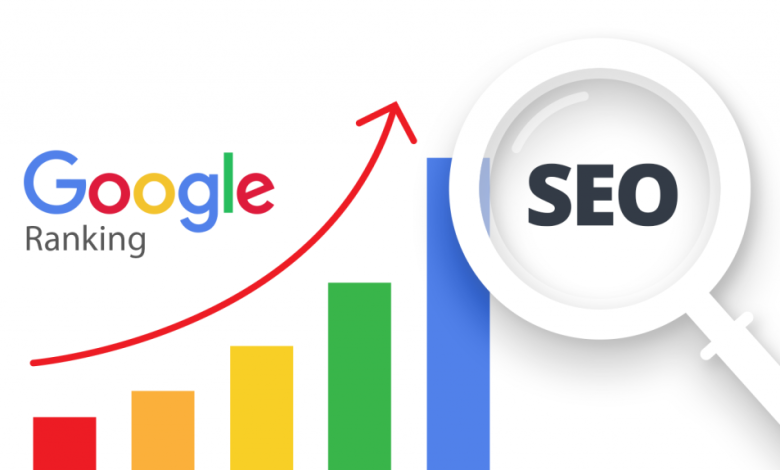
Do you want to rank on Google? Learn how to improve your website’s visibility by following search engine guidelines.In today’s digital age, a strong online presence is crucial for businesses and individuals. Regarding online visibility, Google is the search engine that holds the key. Ranking high on Google’s search results can significantly boost your website’s traffic and, in turn, enhance your online success. But how can you achieve such a feat? This article will delve into the world of Google ranking and uncover strategies to improve your website’s visibility by following the search engine guidelines.
Introduction
Imagine listing your website on the first page of Google’s search results. The increased visibility and organic traffic would undoubtedly positively impact your online presence. But how can you achieve such a coveted spot? This article will explore effective strategies to boost your website’s ranking on Google by adhering to the search engine guidelines.
Understanding Google Ranking
To embark on our journey to improve your Google ranking, it’s essential to understand how the search engine evaluates and ranks websites. Google utilizes complex algorithms that consider numerous factors to determine a website’s relevance and credibility. Some key elements include:
- Relevant Keywords: Incorporating appropriate keywords throughout your website’s content helps Google understand the context and relevance of your pages.
- Quality Content: Providing valuable and informative content that helps and contributes to your target audience’s needs is crucial. Google values high-quality, unique content that engages readers.
- Backlinks: Backlinks are important for your sites. These are links from other websites that refer to your site. Google considers them as votes of confidence, indicating that your website is reputable and trustworthy.
- User Experience (UX): Google prioritizes websites that offer a positive user experience. Factors like page loading speed, mobile-friendliness, and intuitive navigation play a significant role.
- Social Signals: Social media presence and engagement can influence your website’s visibility on Google. Active participation on social platforms can enhance your online reputation.
Understanding these factors will pave the way for optimizing your website and increasing its chances of ranking higher on Google.
Optimizing Your Website’s Content
Content optimization is a vital aspect of improving your Google ranking. You can boost your website’s visibility by incorporating relevant keywords and crafting engaging content. Here’s how you can optimize your website’s content:
- Keyword Research: Perform keyword research to identify your industry’s most relevant and valuable keywords. Tools such as Google Keyword Planner and SEMrush can assist in this process.
- Keyword Placement: Strategically place your target keywords in the page title, headings, subheadings, and content. However, ensure that the keywords blend naturally and do not compromise readability.
- Unique and Informative Content: Craft well-researched and valuable content that aids in the needs and interests of your target audience. Aim to provide a unique perspective or offer solutions to common problems in your industry.
- Readable Formatting: Break your content into smaller paragraphs, use bullet points, and include relevant images or videos. This formatting enhances readability and keeps readers engaged.
By optimizing your website’s content, you increase its relevance and improve its chances of ranking higher on Google’s search results.
Building High-Quality Backlinks
Backlinks play an important role in determining your website’s credibility and authority. Here are some effective strategies to build high-quality backlinks:
- Guest Blogging: Contribute valuable content to reputable websites in your industry. In return, you can request a backlink to your website. Guest blogging helps build backlinks and establishes you as an industry expert.
- Collaborations and Partnerships: Collaborate with other businesses or influencers in your niche. This can involve co-creating content, hosting webinars, or promoting each other’s work, leading to valuable backlinks.
- Content Promotion: Develop compelling and shareable content that naturally attracts backlinks. Boost your content on social media, email newsletters, and outreach campaigns to increase its visibility.
Remember, quality is more necessary than quantity when it comes to backlinks. Focus on building relationships and earning backlinks from authoritative websites within your industry.
Utilizing On-Page SEO Techniques
On-page SEO techniques involve optimizing elements within your website to enhance its visibility on search engines. Here are some key strategies:
- Meta Tags Optimization: Craft compelling meta titles and descriptions that accurately describe your content and entice users to click. Remember to include your target keyword, such as “Google Ranking,” for improved relevance.
- URL Structure: Ensure your website’s URLs are clean, concise, and include relevant keywords
- Header Tags: Utilize heading tags (H1, H2, etc.) to structure your content and highlight key sections. This not only enhances readability but also helps search engines understand the order and sequence of your content.
- Image Optimization: Optimize images by adding descriptive alt text and compressing their file size. This improves website loading speed and allows search engines to understand the intent of the images.
By implementing these on-page SEO techniques, you can optimize your website’s visibility and improve its chances of ranking higher on Google.
Enhancing User Experience (UX)
Google prioritizes websites that provide the best user experience. Here are some strategies to enhance your website’s UX:
- Mobile Optimization: With increasing users accessing the internet via mobile devices, it’s crucial to have a mobile-friendly website. Ensure your website is responsive and offers a seamless experience across different screen sizes.
- Page Loading Speed: Improve your website’s loading speed by optimizing images, leveraging browser caching, and minimizing unnecessary scripts. Faster-loading pages enhance user satisfaction and reduce bounce rates.
- Intuitive Navigation: Design your website with a clear and intuitive navigation menu. Make it easy for users to find the information they need and navigate between different sections of your site.
By prioritizing user experience, you satisfy Google’s guidelines and provide a positive browsing experience for your visitors.
Leveraging Social Media
Social media platforms can significantly impact your website’s visibility and organic traffic. Here’s how you can leverage social media to improve your Google ranking:
- Content Sharing: Share your website’s content regularly on social media platforms. Such as Facebook, Twitter, LinkedIn, and Instagram. Engage with your audience and encourage them to share your content with their networks.
- Social Bookmarking: Submit your website’s content to popular social bookmarking platforms like Reddit, StumbleUpon, and Digg. This enhances the chances of your content going viral and attracting valuable backlinks.
- Influencer Collaboration: Collaborate with influencers in your industry to promote your website’s content. Their endorsement can attract a wider audience and boost your website’s visibility.
By actively participating on social media, you can increase your online reach, engage with your target audience, and get more traffic to your website.
Mobile Optimization
Optimizing website for your mobile devices has become imperative with the increasing use of smartphones and tablets. Consider the following tips for effective mobile optimization:
- Responsive Design: Ensure your website’s responsive design adapts seamlessly to different screen sizes and orientations. This provides a consistent and user-friendly experience across devices.
- Mobile-Friendly Content: Optimize your content for mobile consumption by using shorter paragraphs, concise sentences, and bullet points. Ensure your website’s fonts and buttons are easily readable and clickable on smaller screens.
- Fast Loading Speed: Mobile users expect fast-loading pages. Compress images, minify code, and leverage browser caching to improve your website’s loading speed on mobile devices.
By prioritizing mobile optimization, you cater to a growing segment of internet users and enhance your chances of ranking higher on Google’s mobile search results.
Monitoring and Analyzing Performance
Monitoring your website’s performance and analyzing key metrics is crucial for continuous improvement. Here are some tools and metrics to consider:
- Google Analytics: Use Google Analytics to find and track your website’s traffic, user behavior, and conversion rates. This data provides valuable insights into how visitors interact with your site and helps identify areas for improvement.
- Keyword Ranking: Monitor your website’s keyword rankings using tools like SEMrush or Moz. Track your progress and identify keywords that require further optimization.
- Backlink Analysis: Regularly analyze your backlink profile to ensure the quality and relevance of the websites linking to yours. Tools like Ahrefs and Majestic can assist in backlink analysis.
By monitoring and analyzing these metrics, you can fine-tune your SEO strategies and adapt to the ever-evolving landscape of Google ranking.
Conclusion
Achieving a high ranking on Google’s search results is a goal that many aspire to achieve. Following the search engine guidelines and implementing effective SEO strategies can increase your website’s visibility and attract organic traffic. Remember to create valuable and engaging content, build high-quality backlinks, optimize your website’s on-page elements, prioritize user experience, leverage social media, and monitor your performance. By combining these efforts, you’ll be well on your way to ranking higher on Google.
FAQs
Q1: How long does it take to rank on Google?
The time it takes to rank on Google varies depending on various factors, including your website’s age, domain authority, content quality, and competition. It can take between a few weeks to several months to see significant improvements in your rankings.
Q2: Are paid ads necessary to rank on Google?
No, paid ads are not necessary to rank on Google. While paid advertising can provide immediate visibility, organic rankings can be achieved through effective SEO strategies and valuable content that satisfies search engine guidelines.
Q3: Can I improve my Google ranking without technical knowledge?
Yes, you can improve your Google ranking without extensive technical knowledge. While certain technical aspects of SEO require expertise, focusing on content quality, backlink building, user experience, and social media engagement can significantly impact your website’s visibility without deep technical knowledge.
Q4: Should I stuff keywords into my content to improve ranking?
No, keyword stuffing is not recommended. Google values high-quality content that provides value to readers. Instead of stuffing keywords, use them naturally in your content to maintain readability and relevance.
Q5: Is Google ranking the only measure of online success?
While Google ranking is an essential metric for online success, it’s not the only measure. Other factors, such as website traffic, conversion rates, engagement metrics, and overall business goals, should also be considered to assess the success of your online presence.
Remember, achieving a high ranking on Google is a continuous process that requires consistent effort, optimization, and always updating with the latest trends and guidelines. By following the strategies outlined in this article, you’ll be well on your way to improving your website’s visibility and attracting valuable organic traffic.
Read more articles at Recablog





